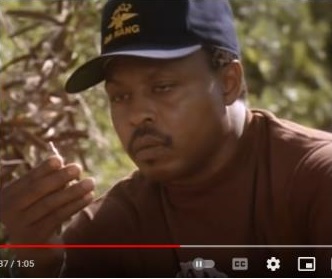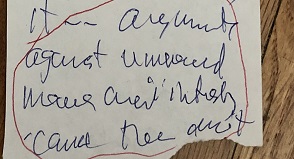They're speaking multiple voices, Seo Taiji and Boys speaking for the kids, and speaking for Seo Taiji and Boys; Seo Taiji and Boys speaking for the parents, and speaking for Seo Taiji and Boys. This is what the runaways are feeling, this is what the runaways are saying about the world and it's what
we're feeling and saying about the world. This is the parents' plea, this is
our (ST/Boys) plea to the kids, this is what we/I'm seeing (in the world). Simultaneously trying to protest society, speak
to society, speak
for society (hoping to offer the kids hope).
Seo Taiji and Boys "Come Back Home" MV (1995)
Tom Ewing was looking for 21st century covering the 20th for his
People's Pop Polls, and I nominated BTS's cover of Seo Taiji and Boys' "Come Back Home."
At the start, the
BTS version sounds even more spectral than the original, as if the sound really is the ghost of the past. The BTS electronics are more fragmented, with ominous foghorns scraping away deep in the mix. Gets the song's menace and tension even if BTS's vocals don't have the percussive whip-crack of the original's, of Seo Taiji's voice cracking like knuckles yet still finding its way to a flow. In general, the musical pressure BTS put on themselves makes the song knottier. Feels very courageous, what BTS are doing with their voices. That for me is the message, the reaching back to something that twists them tight, more than the words – but there are some lyrical modifications that I'm not happy about, that if I'm reading them correctly (big IF) sidestep Seo Taiji's wisdom in favor of BTS's own Korean work ethic (see below), BTS falling into a trap. And Seo Taiji's wisdom wasn't altogether satisfying in the first place.
South Korea 1995, just eight years after the dictatorship was overthrown, Seo Taiji being social discontent personified, but he doesn't have the insane and terrified and desperate
optimism of Bob Dylan, "Like A Rolling Stone," without a home, USA 1965, Dylan thinking that you can actually overthrow yourself and make that – your own overthrow – your precondition to finding genuine connection with others. Dylan is
wildly ambitious, not materially but emotionally, socially. Yet at the same time, "Like A Rolling Stone" is the very clear-eyed story of someone discovering just how desperately reliant s/he is on other human beings. Anyway, Dylan emphatically was not inviting anyone to come back home, or telling them to go back home or to return to the self they'd overthrown. He wasn't worrying a social problem, he was plumping for liberation, and solidarity. Whereas Seo Taiji's words are less a parable and more... limiting? realistic?
But in 1995 Seo Taiji's
sound is the song's most potent message, and the message of the sound
is extreme – and promising and risky, what Seo Taiji was getting out of American sounds, New Jack Swing, Run-DMC, Cypress Hill, opening the door to a sonic adventure, a sound as inviting and perilous – calling to the unknown – as Dylan's electric guitar once had been.
Seo Taiji and Boys "Come Back Home" live* (1995)
When in the Seo Taiji and Boys version YG says (speaking for himself and for/to the potentially returning runaways), "Because we are still young and our future is good enough," the understanding is that this is compromised, accepting of limitations (versus "I wish I could fly in the sky" in the previous verse which could do double duty as both a desire for greatness and beauty, on the one hand, and a suicide threat on the other).
At least, that's
my understanding.
Pretty sure it's YG who's intoning "Come Back Home" (in the live lipsynch both he and Lee Juno mouth it), but there's not a role division, one rapper speaking for the kids and another for the parents; they're all interchanging from all sides. For instance, YG starts a verse "My rage toward this society is getting greater and greater" and Seo Taiji continues the thought, "Finally, it turned into disgust" (another translation goes "The anger that blamed this society finally became hate"). Lee Juno has the verse that's most specific about the kid in the family conflict, but on the phrase "And parents take charge, no love for me" all three join "no love for me."
Seo Taiji and Boys "Come Back Home" lyrics English translation:
https://genius.com/Seotaiji-and-boys-come-back-home-lyricsSeo Taiji and Boys tell the teen runaways that there's still hope, that they're still young and that
some future, however imperfect, is better than no future. The trouble is – I shouldn't say "trouble," because it benefits the song, and without this trouble the song would be a cheat – that the no-future lyrics are more eloquent than the reconciliation lyrics. But note that the genius.com commentary includes an interpretation that speculates that ST/Boys speaking the phrase "come back home" in
English – and saying it in English on behalf of parents – is a way for the parents to signal to their runaway kids that they're willing to adapt to the kids' new lingo. I don't know if this interpretation is right, but it's poignant.
There's the disconcerting fact, the way Seo Taiji sounds – to me, but not just me, lots of the Internet hears this too, B-Real's vocals, the snaking synth – like the scary snide provocative Cypress Hill of "
How I Could Just Kill A Man." A real promise/menace of those runaway streets.
Can't say how the words in Korean signify in Korea, the life and meanings they take on. Still, "I realized now that you loved me," even when it's true, hardly feels adequate in relation to what people run
from – violence, addiction, incest, boredom, hunger – or run
to, excitement, sex, boyfriend, girlfriend, more addiction.
BTS leave out the verse of the family troubles, and the anger that turns to hate. And they add self-pressure to the lyrics that misses the point, I think (BTS inflicting the sort of pressure on themselves that the Seo Taiji teenagers of 22 years earlier had been trying to get out from under).
BTS "Come Back Home" (2017)
BTS "Come Back Home" lyrics English translation:
https://popgasa.com/2017/07/05/bts-come-back-homeTo the honor of my family, my mother
To fill the stomachs of my family
I'll keep working hard
That sounds like BTS talking about BTS, but how does that speak to a runaway? Seems to me it represents the sort of aspirational pressure that Seo Taiji understood the runaways to be running away from in the first place.
Unless
I'm the one missing the point (I say hopefully), and the verse is meant to indicate pressures that the kids were under that
set them running away. The verse comes mid-song, the part in the Seo Taiji and Boys original where the song switches to reconciliation. But maybe that's not the words' role in this version. One translation has, as the verse's second line, "to make my family get stuffed til their stomachs explode," which could be seen as sarcastic. (I think this is my wishful thinking.)
Wish I had my LiveJournal crew from the early '10s to help me, where they were constantly advising me and helping me on my understanding of K-pop. I haven't spent much time reading BTS lyrics translations to get a sense what BTS
would be saying. I was fading from K-pop as BTS were rising. —The verse is by RM, if that's a help. Is the most boisterously frenzied part of the track, very different from Seo Taiji's percussive darts but the only section that matches the original's intensity, which is why I'm welcome to interpreting it as more pained than I'm getting from the verse's apparent positivity on the page.
Going back to my first interpretation, that they mean the verse straight, "I was in despair but now I'm determined to make the best of it" could be a great personal story – I hope it's a lot of people's – it just seems to skip the world, how you get there, when actual families mess up and when actual teenagers run away.
That said, trying to cover "Come Back Home" is like trying to cover "Papa's Got A Brand New Bag" or "A Day In The Life" – the original is so singular and its impact such a given (which kind of neutralizes it) that somehow approximating or at least taking account of the original is pretty gutsy, even if BTS themselves are running away from the original's predicament.
Also, I'm absurdly delighted that, in the runaway section, BTS say, "Angry? Hungry? Yes I'm hangry," from the support-group present. (Rapper is J-hope according to this
color-coded vid.)
*Lip-synching, obv, but with amazing dance moves they couldn't have done otherwise. The crowd is truly animated, like the Michael Jackson audience at the Motown anniversary concert.
CROSSPOST: HTTPS://KOGANBOT.LIVEJOURNAL.COM/389614.HTML
CROSSPOST: https://koganbot.substack.com/p/i-wish-i-could-fly-in-the-sky-seo






